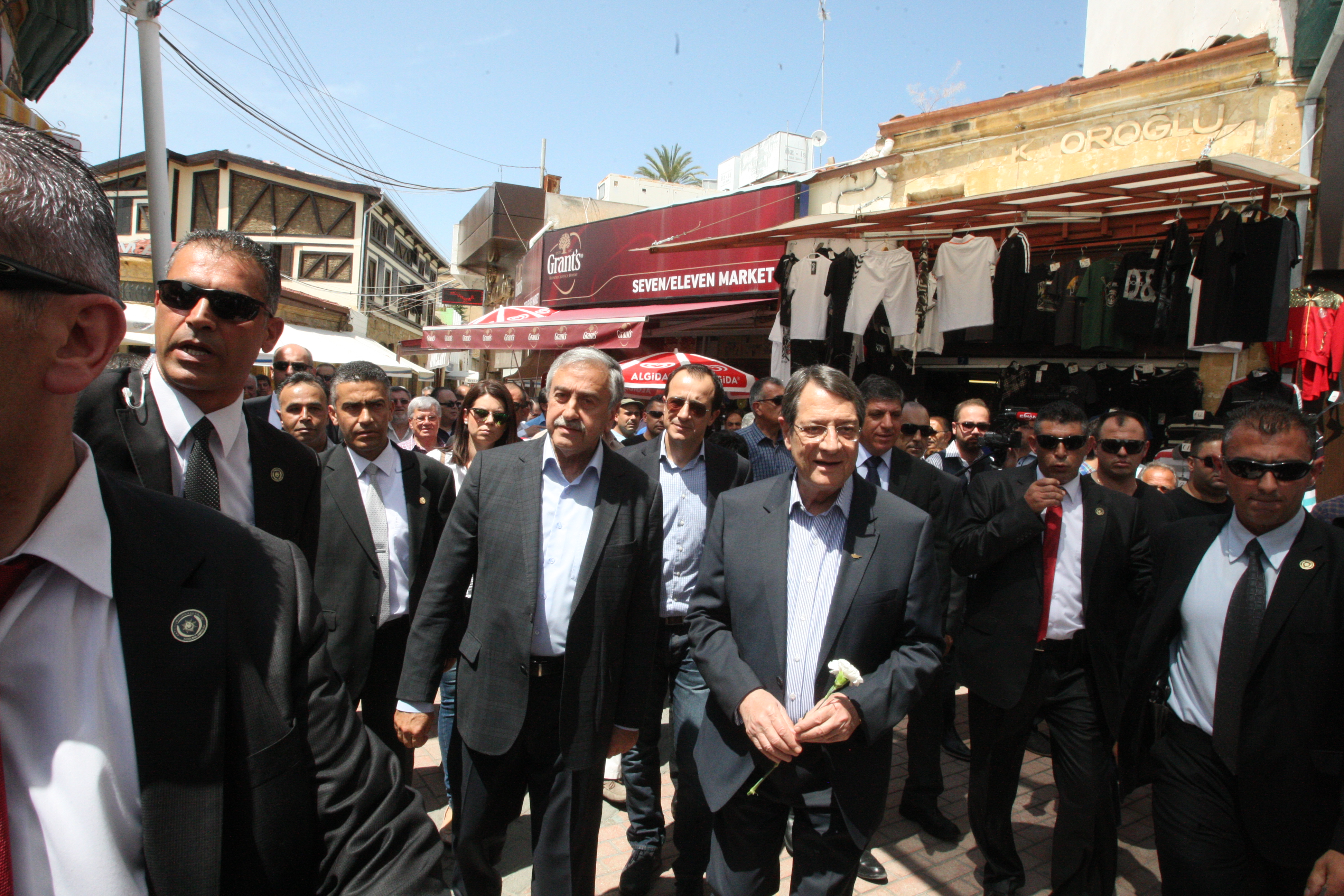Two years of talks between Nicos Anastasiades and Mustafa Akinci finally paid off when the biggest conference on Cyprus since Burgenstock in 2004 was called for July, with a second real chance to secure a settlement at Crans-Montana, also in Switzerland.
But before that, due to “unprecedented substantive progress” the UNSG convened first a conference on Cyprus in January 2017 in Geneva, according to the UN chief. By January 2017, the contours of a bizonal, bicommunal federation with political equality were well known and had been largely agreed, he said.
The meetings held between January 9 and 12 were a “watershed moment” in the process, he said. For the first time in the history of the negotiations, the two leaders presented each other with their preferred maps of the internal administrative boundary. “The presentation of maps was an important moment both in itself but also in that it was seen by both sides as a sign that the process was moving towards the ‘end game’ the UNSG report said.
On the basis of these commitments, the Conference on Cyprus reconvened on June 28 in Crans-Montana, Switzerland, with the participation of Mr. Anastasiades and Mr. Akıncı, the Ministers for Foreign Affairs of Greece, Turkey and the United Kingdom and the Vice-President of the European Commission in his capacity as observer. With the aim of arriving at a strategic agreement on all major outstanding issues.
Smiles, handshakes, photo-ops and positive statements
Day 9 of the talks began with the return of United Nations Secretary-General Antonio Guterres in a bid to rejuvenate the negotiations. Cue ubiquitous photo op with the leaders, the foreign ministers of Turkey and Greece, the EU’s Federica Mogherini and Britain’s Sir Alan Duncan.
Turkish Cypriot leader Mustafa Akinci told reporters: “Today is not a day to engage in the blame-game. It is the day to help each other and see if we can reach an agreement. We don’t know whether we will have the same opportunity tomorrow.” Twenty-four hours later he had completely changed his tune.
You knew things were not going well when lunch was pushed back and Guterres had to meet separately with the leaders and the different factions. This went on all afternoon. British Permanent Representative to the United Nations Matthew Rycroft said that Guterres “is straining every muscle to get Cyprus talks over the lines”. He would not have been the first.
Crans-Montana – the longest night
But like all processes before it, Crans-Montana came crashing down in the early hours of July 7- Day 10.
Cypriots woke up that Friday morning to the ashes of ten days of make-or-break talks, which crashed and burned in dark of night.
Both sides accused the other of being responsible for the gigantic failure of talks that seemed to swing between ‘almost there’ to ‘never there’ from day to day until an exhausted and clearly disappointed Guterres, after 15 hours of negotiating, called a halt at 3.15am Cyprus time.
Guterres’ news conference lasted only 3.5 minutes. He said he could not isolate a particular issue as the death knell for the talks, but was firm that the conference was over and he wished “the best for all the Cypriots north and south”.
UN Special Adviser Espen Barth Eide tweeted on his way out of Crans-Montana: “Close, but not close enough: A somber mood as delegations leave #CransMontana, after 10 days, without agreement”.
Guterres deeply sorry, wishes the best for Cypriots north and south
It was almost as devastating as the ‘no’ vote in the 2004 referendum. That had set negotiations back for 13 years, Crans-Montana, although no one knew at the time, put the Cyprus issue back into the deep freeze for more years to come.
Then the real fun began, statements, rumours, innuendo and the ubiquitous blame game. Both sides accused the other of being responsible for the gigantic failure of the talks that had seemed to swing between ‘almost there’ to ‘never there’ from day to day.
July 2017: Picking up the pieces from Crans-Montana
Each side blamed the other for weeks over a long, hot summer, (and months and years after that) waiting for Guterres to put the other straight in his eventual report, which came on September 30.
The carefully-worded verdict: A historic opportunity was missed in Crans-Montana and no blame was assigned. So, the Swiss negotiations like all those before them were consigned to the dustbin of Cyprob history, and another special envoy has gone to the diplomat’s Cyprob graveyard.

